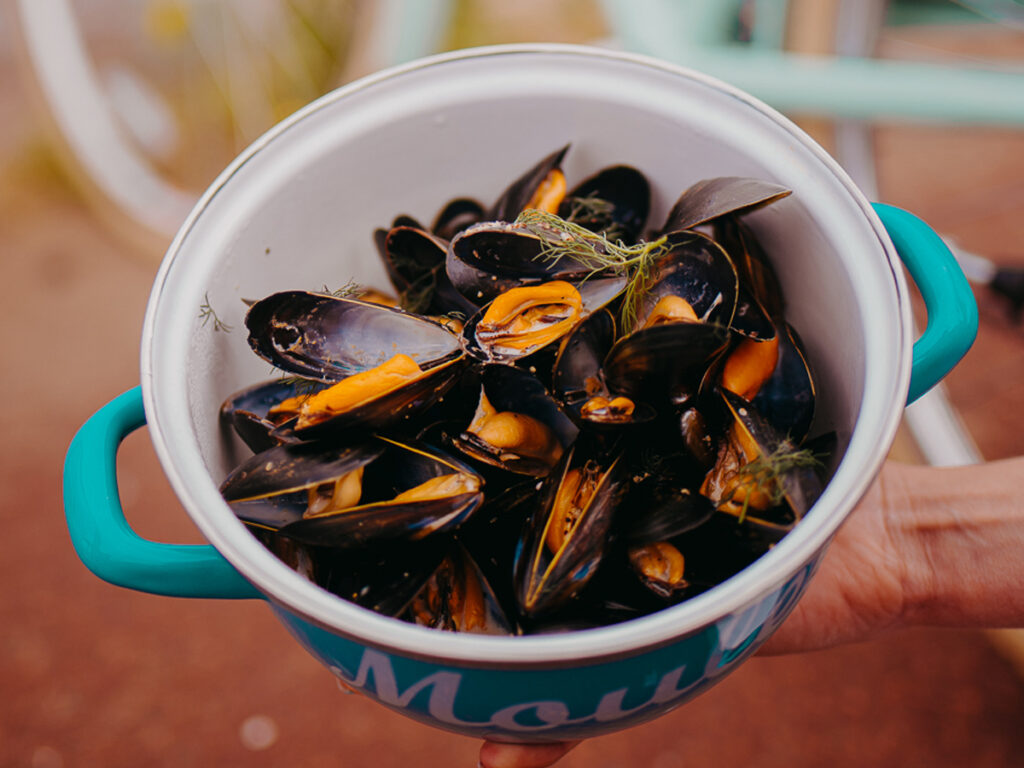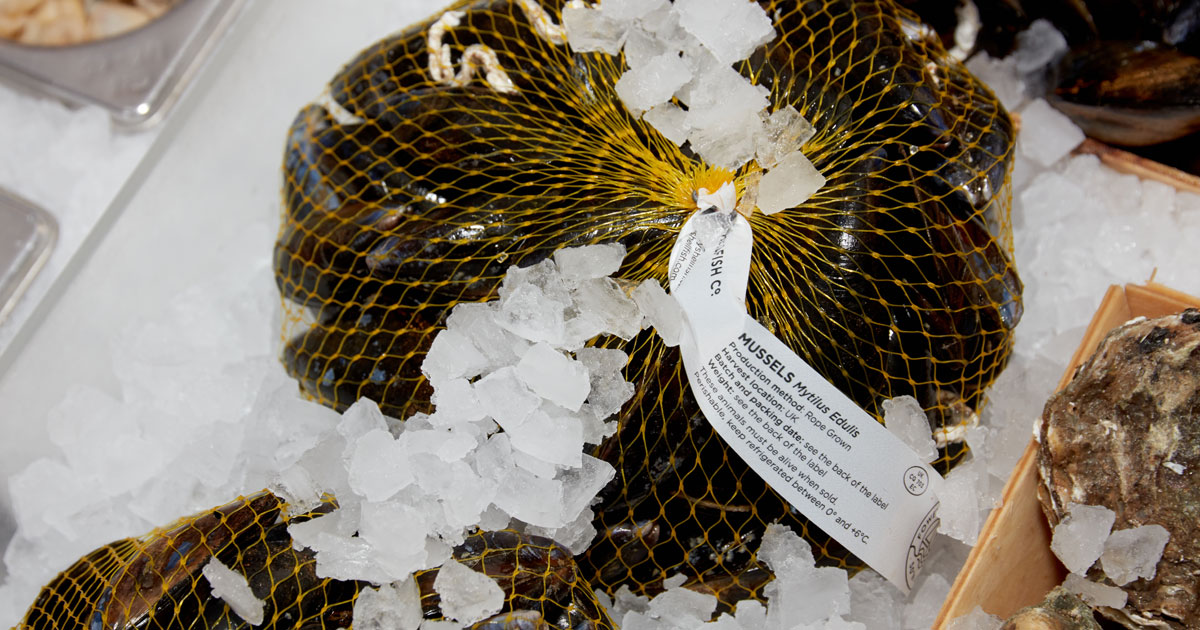
Last updated: 1 March, 2025 @ 10:43
High in protein and low in fat, the humble (and affordable) mussel is an underappreciated and unloved seafood superstar.
However, in addition to its benefits as a vitamin-rich food source, new research has revealed that farmed mussels also play a key role in improving the health of our oceans.
Researchers from the Marine Biological Association (MBA) and the University of Exeter teamed up to determine whether aquaculture sites, such as mussel and seaweed farms, help or hinder fish abundance and diversity.
Using baited remote underwater videos (BRUV) units, researchers recorded and compared fish presence in locations in and around two integrated mussel and kelp farms in Cornwall – with fishing surveys used to determine feeding patterns.
‘Significantly higher numbers’
Researchers found that at least 11 fish species were recorded across the surveys, with farmed mussels and kelps supporting significantly higher numbers and diversity of fish compared to areas outside these locations.
The new study identified several commercially and ecologically important fish species using the farmed areas, including mackerel, pollack, and greater sand eels, with diet analysis revealing that farms ‘may provide important new feeding grounds for these species’.
Juvenile fish were also found in abundance at both farms, suggesting the sites may provide important nursery and breeding grounds, although researchers say that more investigations are needed to verify these findings.

‘Nature-based solutions’
Sophie Corrigan, lead author of the study said: “Given the degradation of natural habitats around our coastlines, the decline of many important fish stocks, and the clear need for increased sustainable food systems, these results provide important evidence about how shellfish and seaweed farms could be used as nature-based solutions if appropriately managed.
“The increase in fish abundance within these farms will likely have spill-over benefits to other marine users including fisheries, which may help to facilitate the inclusion of sustainable aquaculture within marine planning.”
More work needed
Researchers say that going forward, there needs to be ‘greater recognition from policymakers and governmental bodies on the potential environmental benefits of shellfish and seaweed farms’.
Greater understanding of these sites and the impact on ecosystems will ‘help increase provisions for habitat protection and environmental stewardship at these sites’.
Mussels: More information
Mussels are affordable, good for us, and best of all, incredibly quick and easy to cook – find out more in the Fish Face Seafood Blog guide to the mighty mussel.